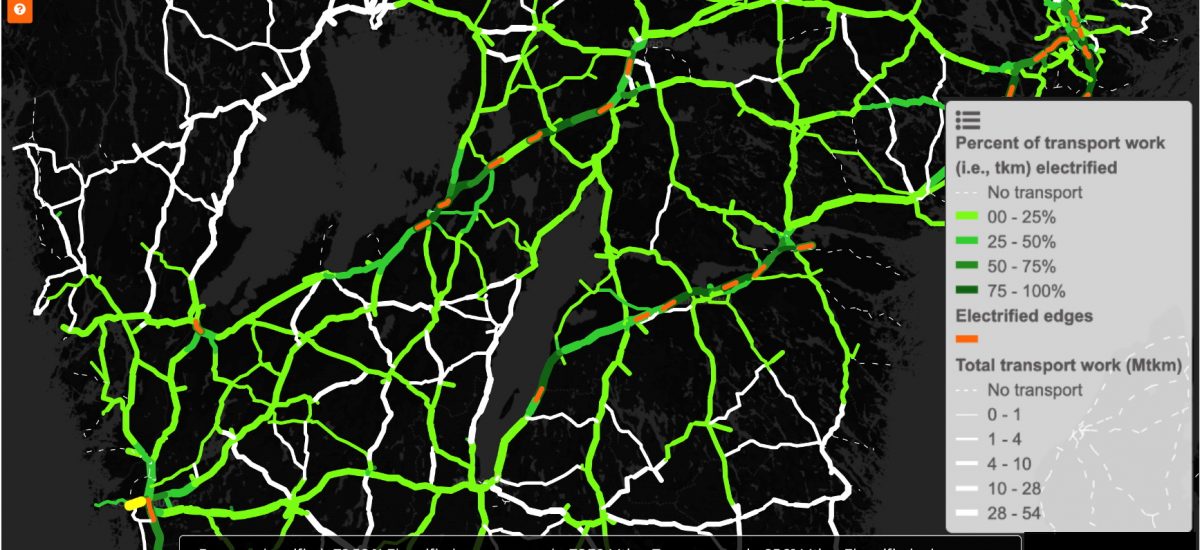
Learning in Routing Games for Sustainable Electromobility
Objective
The Learning in Routing Games for Sustainable Electromobility (RoSE) project will employ large-scale simulation, learning, and game theory to develop sustainability-aware traffic routing tools. The tools will leverage and fuse heterogeneous, noisy, and often incomplete data from various sources, such as infrastructure condition data, traffic flow data, and power distribution grid data. The key contribution is to account for operational costs, infrastructure condition deterioration, and environmental externalities in the design of socially desirable, sustainable traffic routing mechanisms. We will address questions such as: How should heavy-duty vehicles be routed at scale to find a good trade-off between operational costs, sustainability, and electric power grid constraints?
Background
The transportation sector is the largest contributor to greenhouse gas emissions worldwide (about 24% of CO2 emissions in the EU and about 28% in the USA). The electrification of road transportation presents an opportunity to defer emissions from roads to electric power generation. However, the ambition to achieve zero-emission mobility requires a new, sustainability-oriented approach to transportation planning at a societal scale, respecting infrastructural constraints and individual incentives while being resilient to infrastructure component failures and data uncertainty. A promising approach is using digital traffic routing tools that maximise green energy utilisation while respecting other vital environmental constraints.
Crossdisciplinary collaboration
RoSE is a collaboration between KTH (EECS and ABE school) and MIT (Department of Civil and Environmental Engineering) in Cambridge, USA.
Watch the recorded presentation at the Digitalize in Stockholm 2023 event:
Contacts

Henrik Sandberg
Professor, Division of Decision and Control Systems at KTH EECS, Member of the Strategic Research Committee, Chair Working group Trust, PI of research project Learning in Routing Games for Sustainable Electromobility (RoSE), Co-PI of research project Causal Reasoning for Real-Time Attack Identification in Cyber-Physical Systems, Co-PI of research project Decision-making in Critical Societal Infrastructures (DEMOCRITUS), Digital Futures Faculty
+46 8 790 72 94hsan@kth.se

György Dán
Professor, Division of Network and Systems Engineering at KTH, Member of the Strategic Research Committee, Chair working group Cooperate, PI of research project Susan’s Ride on Campus2030, PI of research project Causal reasoning for real-time attack identification in cyber-physical systems, Co-PI of demo project CAVeaT Connected Automated Vehicles trialling and Trustworthiness, Co-PI of research project Learning in Routing Games for Sustainable Electromobility, Digital Futures Faculty
+46 8 790 42 53gyuri@kth.se

Gyözö Gidofalvi
Associate Professor at KTH, PI: ChEss Machines For ElectriFiEd Construction SiTes (EFFECT), Co-PI: GEO-based Multi-layer Environmental Modelling of Urban TraffIC (GEOMETRIC), Co-PI: Learning in Routing Games for Sustainable Electromobility, Digital Futures Faculty
+46 8 790 70 21gyozo@kth.se

Saurabh Amin
Associate Professor, Civil and Environmental Engineering Massachusetts Institute of Technology
amins@mit.edu

